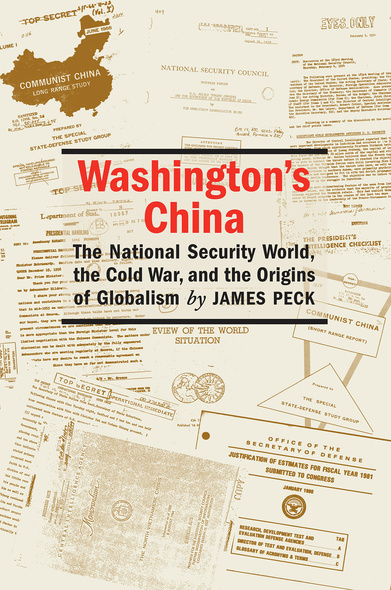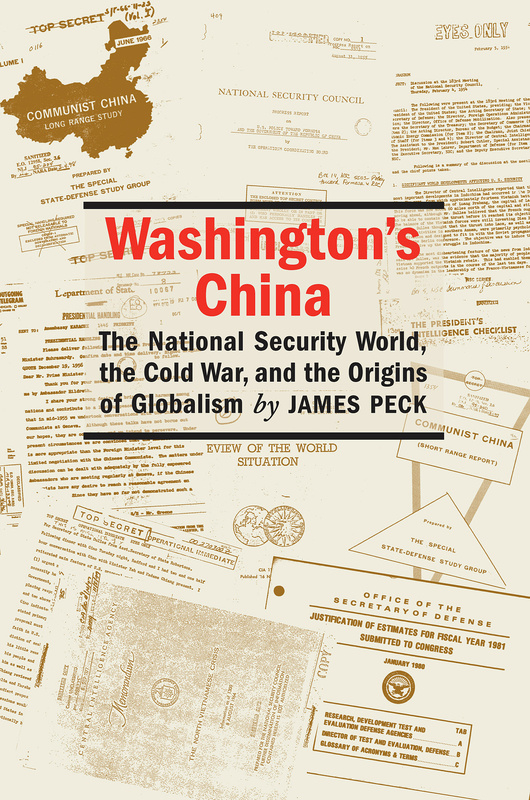Washington's China
The National Security World, the Cold War, and the Origins of Globalism
University of Massachusetts Press
This book addresses a central question about the Cold War that has never been adequately resolved. Why did the United States go to such lengths not merely to "contain" the People's Republic of China but to isolate it from all diplomatic, cultural, and economic ties to other nations? Why, in other words, was American policy more hostile to China than to the Soviet Union, at least until President Nixon visited China in 1972?The answer, as set out here, lies in the fear of China's emergence as a power capable of challenging the new Asian order the United States sought to shape in the wake of World War II. To meet this threat, American policymakers fashioned an ideology that was not simply or exclusively anticommunist, but one that aimed at creating an integrated, cooperative world capitalism under U.S. leadership—an ideology, in short, designed to outlive the Cold War.In building his argument, James Peck draws on a wide variety of little-known documents from the archives of the National Security Council and the CIA. He shows how American ofï¬cials initially viewed China as a "puppet" of the Soviet Union, then as "independent junior partner" in a Sino-Soviet bloc, andï¬nally as "revolutionary model" and sponsor of social upheaval in the Third World. Each of these constructs revealed more about U.S. perceptions and strategic priorities than about actual shifts in Chinese thought and conduct. All were based on the assumption that China posed a direct threat not just to speciï¬c U.S. interests and objectives abroad but to the larger vision of a new global order dominated by American economic and military power. Although the nature of "Washington's China" may have changed over the years, Peck contends that the ideology behind it remains unchanged, even today.
China is the subject matter of this book, but it is also the focus used by the author to analyze and dissect internal, highly classiï¬ed American ideological explanations and justifications for its evolving strategies toward the entire 'communist bloc' throughout the Cold War. . . . Above all, Peck's study shows us the roots of American 'globalism'—its tendency to see the entire world as a single chessboard, much as the Marxist-Leninists did, rather than to deal discretely with different situations.'—Chalmers Johnson, author of The Sorrows of Empire:
Militarism, Secrecy, and the End of the Republic
'Controversial and provocative, Peck's passionate book is now an indispensable part of the literature on the modern history of US-China relations. . . . The dynamic mental world of those responsible for the United States' policy towards China that Peck has reconstructed is powerfully and compellingly asserted as never before.'—The International History Review
'In this new examination of U.S.-China policy, based in part on recently declassified intelligence documents, James Peck explains that the 'visionary globalism' of American policy makers mandated a hostile attitude toward China in order to give the United States time to implement plans for restructuring the Asian economy along liberal-capitalist lines.'—Journal of American History
'Washington's China is a must-read book, not only for those interested in U.S.-China relations during the cold war years, but for understanding the global outlook that guided U.S. foreign policy-making in those years, especially policies toward socialist and Third World regimes.'—Critical Asian Studies
'Peck's careful dissection of how and why China moved to the very center of American foreign policy transforms one's understanding of the post-1945 world and enables an understanding of the present. The challenge Chinese independence posted to America's Asian order is as sharp today as it was in 1949. Washington's China eloquently and with great insight explains why.'—Marilyn B. Young, author of The Vietnam Wars, 1945–1990
'This stunning review and interpretation of the National Security culture that has dominated policy-making since World War II is a remarkable achievement. It is almost impossible to believe the ideological fanaticism of the 'wise men present at the creation' and their successors revealed by Peck's richly documented and perceptive inquiry, their 'systematic inability to come to terms with the virulence and pervasiveness' of the 'visionary globalism' driving their strategic policies, which he more than amply demonstrates. It is startling to observe how for decades, the distorting prism of doctrinal rigidity was able to refract an image of China, and the world, that served the international and domestic goals to which the National Security Community was passionately dedicated, no matter what the evidence, no matter how circumstances changed. The picture that emerges is both painful and frightening, not least because of its bearing on what is happening in the world right before our eyes.'—Noam Chomsky, author of Failed States:The Abuse of Power and the Assault on Democracy
'James Peck's incisive and masterful analysis of hitherto largely secret intelligence documents goes beyond U.S. policy toward China per se to illuminate the ideals, ideologies, code words, and delusions that shaped global strategy from World War II into the 1960s. Washington's China is a splendid guide for understanding how much has changed in the relationship between the two powers since then—and how much still remains unchanged where the core vision of American globalism is concerned.'—John W. Dower, author of Embracing Defeat: Japan in the Wake of World War II
James Peck is director of the U.S.-China Book Publication Project. He lives in New York City.






